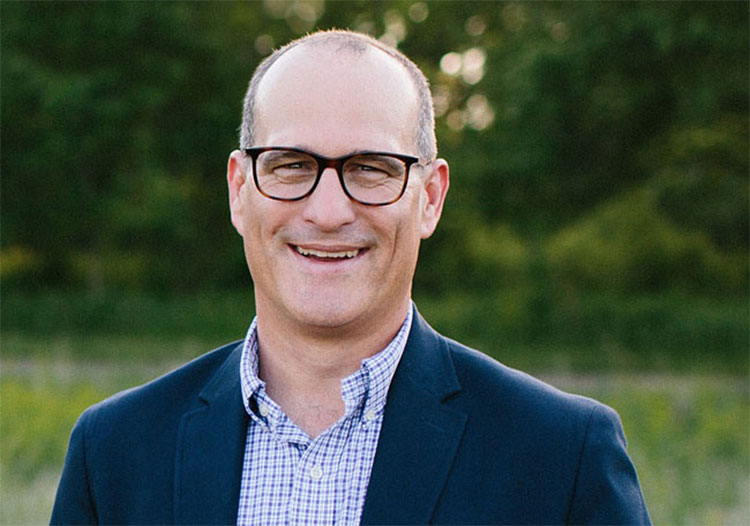If You’re a Solopreneur Who Wants to Live Life On Your Own Terms, You Must Get These 4 Things in Order

As a solopreneur, my guess is that your goal isn’t to make more money. At least, that’s not the real goal. Instead, your goal is to live life on your terms. Right? Money is just a tool to help you do that.
Of course, getting yourself set up to live life on your terms has many steps. But of all the steps involved, four of the most critical are addressing your cash flow, figuring out your purchases, handling your debts, and creating emergency savings.
Bottom line: if your goal is to have the freedom to live the life of your dreams, then getting these four things in order will help you get from here to there.
#1: Manage Your Cash Flow
Simply stated, your cash flow is the amount of money that comes in every month versus the amount that goes out the door. If you’ve got $10,000 coming in every month and $15,000 going out, you’ve got a cash flow of negative $5,000 (and a problem you need to address right away!)
I’ve seen situations that were nearly that grim. I once hired a plumber to replace our water heater. He was a great plumber—and he was a beaten man, because he didn’t know how to run the financial side of his business. “I’m sorry to tell you this,” he began, “but I need to have $1,000 to start this job. The wholesaler needs a down payment so I can get your water heater.”
I wrote him the check, and he did a great job. We got to know each other as he worked, and at one point he asked what I did for a living. After the work was done he came in with his wife and his tax returns, bank statements, and other documents I needed to assess his situation, and we all sat down together. He was embarrassed to share them, sure that I’d tell him he needed to shut his business down.
The problem? His cash flow. He didn’t bill on time, so he couldn’t pay his bills on time either, and wholesalers stopped extending credit. He didn’t need to shut down his business, but he did need to take control of his cash flow.
My point in telling you this story is to drive home the fundamental importance of managing your cash flow. For a solopreneur, whose business income and personal income feel like the same thing, success can only start there. That’s why it’s first on my list.
#2: Identify Your Significant Purchases
Lloyd and Elaine came to me with a successful business in a small town that generated between $500,000 and a million dollars a year—but they liked to spend their money. They had only $40,000 in retirement savings, a half a million in debt, and lots of expenses.
They were in their late fifties and had reached the point in life where they wanted to begin thinking about winding things down, eventually turning the business over to their son. There was this too: Lloyd wanted nothing more than to take Elaine to Fiji for the vacation she’d always dreamed of.
Could they do it? My answer was yes, and so we set to work on the financial plan that would get them there. We had a lot to do—but this was about achieving the life they wanted to live. So we put that trip to Fiji under their purchases.
By purchases, I don’t mean the groceries or the electric bill. I don’t mean a new pair of corduroys or high-heel shoes, either. These are ongoing or routine expenses, and they’re covered in your monthly cash flow.
Instead I’m talking about significant, one-time expenses. Your dream vacation. The used cars you need to buy for each of your kids as they reach driving age. A hot tub for your deck, an addition for the in-laws, and other home improvements. In other words, expenses that are big enough that you need to plan for them.
#3: Liquidate Your Debts
Managing your cash flow and identifying your purchasing goals are both crucial to living life on your own terms, but they aren’t the only steps you have to take. You also need to get rid of your debts.
Liquidating your debts equals freedom. It’s a simple, universal truth. You want to be on a path to reducing your debt so that you have the freedom you want when you need it. If your goal is to be out of debt by retirement, how are you going to get there?
Debt is not inherently bad. I’m a big fan of debt with a purpose. If you’re a medical student going deeper into debt with each passing year, that’s one of the greatest investments you’ll ever make—because you’ll earn a lot of money coming out the other side of your education.
We happen to be in a time when interest rates are historically low. That means it’s wise to consider taking advantage of it. I have seen many clients take years off their mortgages by refinancing. Some of them have done it twice, because rates are so low.
All that said, the fundamental rule applies. Paying down debt and ultimately avoiding it altogether equals freedom.
#4: Create Emergency Savings
There’s one more piece to this puzzle: emergency savings. As a solopreneur, your business income and your personal income feel like the same thing. If you don’t have adequate savings in place, both your business and your household are at the mercy of events beyond your control—a pandemic, say.
You’ll be thrown into a debt spiral, charging your car repairs, the new furnace, and any other expenses you can’t avoid to your credit cards. You need to avoid that. I urge my clients to set aside enough savings to cover 12 months of living expenses, or six months at the very least. Remember, that’s the goal; it may take time to get there.
One of my clients was a consultant back at the time of the Great Recession in 2008, and he told me how he watched in horror as the housing market went down, the stock market went down, and his investments went down.
He survived by the grace of God. And every year after as the economy recovered he added a little extra to his emergency savings in preparation for the next jolt. He knew one was coming; they always do. It was just a matter of what and when. “I’m at peace,” he told me when I checked in. “I know I’m going to be okay.” That’s the beauty of emergency savings.
Cover Your Realities
With your cash flow, purchases, debts, and emergency savings accounted for, you’ve covered what I call your realities. You are setting yourself up to live a life of freedom—one that’s completely on your terms.
Remember, all of these goals may take a while to achieve. Creating an emergency savings fund that has 12 months of living expenses, for example, isn’t necessarily easy! But, it’s well worth it, because it will give you peace of mind and help protect you in case of unforeseen disaster.
So, figure out where you are in each of these areas. If any of them need attention, start taking steps today to address them. Trust me: when you’re living the life you love, you’ll be glad you did.
For more advice on how to set yourself up for a life of freedom, you can find The Solopreneur’s Money Manifesto on Amazon.
Written by Gabe Nelson, The article is adapted from The Solopreneur’s Money Manifesto: How to Master Your Finances and Create the Life You Want.
Have you read?
# Best CEOs In the World Of 2022.
# Best Citizenship and Residency by Investment Programs.
# These are the world’s most and least powerful passports, 2022.
# The World’s Richest People (Top 100 Billionaires, 2022).
# Case Study: Warren Buffett, LVMH’s Bernard Arnault, Apple’s Tim Cook, and Elon Musk.
Add CEOWORLD magazine to your Google News feed.
Follow CEOWORLD magazine headlines on: Google News, LinkedIn, Twitter, and Facebook.
This report/news/ranking/statistics has been prepared only for general guidance on matters of interest and does not constitute professional advice. You should not act upon the information contained in this publication without obtaining specific professional advice. No representation or warranty (express or implied) is given as to the accuracy or completeness of the information contained in this publication, and, to the extent permitted by law, CEOWORLD magazine does not accept or assume any liability, responsibility or duty of care for any consequences of you or anyone else acting, or refraining to act, in reliance on the information contained in this publication or for any decision based on it.
Copyright 2024 The CEOWORLD magazine. All rights reserved. This material (and any extract from it) must not be copied, redistributed or placed on any website, without CEOWORLD magazine' prior written consent. For media queries, please contact: info@ceoworld.biz
SUBSCRIBE NEWSLETTER








